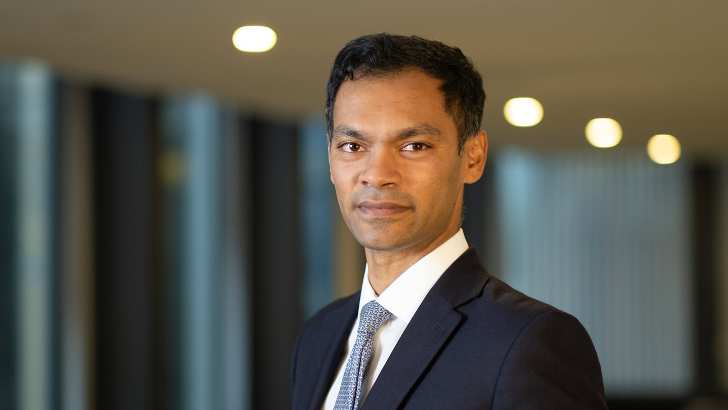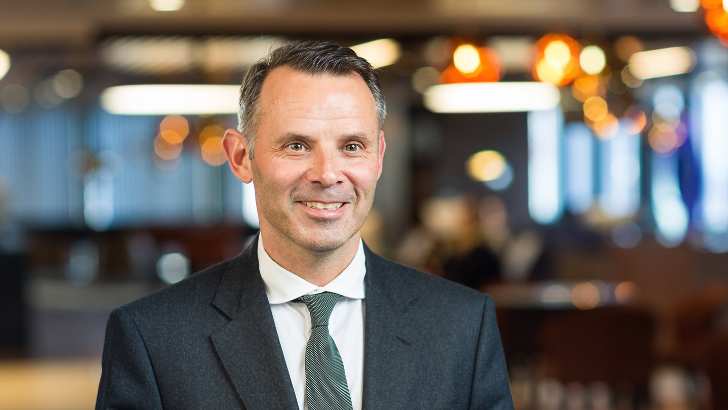Opportunities in the transition to a sustainable future
Our Sustainable Transition range targets opportunities across asset classes that aim to support and accelerate the transition to a sustainable future. Individual strategies focus on specific themes we believe to represent the biggest sustainability challenges in the world such as social transition (People), climate transition (Climate), and natural capital transition (Earth).
People
Social inequality in its multiple guises such as income, race and gender pose a systemic risk to society and the wider economy.
Climate
The scale and urgency of change needed to address climate change and ensure global greenhouse gas emissions are aligned with a 1.5 degrees Celsius pathway will impact every part of the global economy.
Earth
The risks associated with biodiversity loss and the erosion of nature are frequently overlooked by the market. This often results in the mispricing of companies with significant impacts or dependences on nature.
Please note each approach will differ in terms of its objective - please see below strategies in focus for more detail.
Transition strategies in focus
Strengths
Complex sustainability challenges cannot be addressed by investing in solutions alone. We believe a broader cross-section approach to transition is required to maximise long-term return while seeking a positive contribution in the transition to a more sustainable future for People, Climate and Earth.* Our proprietary approach to sustainable transition is applied consistently across asset classes and leverages the following key strengths:
Backing transition
Proprietary approach across asset classes to identify opportunities that are best supporting and benefiting from the transition to a sustainable future.
Investing with purpose
Dual mandate aiming to deliver returns over the long term and support the sustainable transition.
Specialist teams
Sustainable analysts support portfolio managers** to identify opportunities, while leveraging expertise from the broader sustainable investing team and investment platform.
*While our People, Climate and Earth pillars are strategy specific, all strategies in the range have an overarching theme of supporting sustainable transition.
**Beyond any binding constraints in the prospectus or IMA and Baseline Exclusions Policy, the investment manager retains discretion over decision making taking into account ESG risks alongside other factors.
Key risks
Full information on specific risks and risk profiles of each of our funds please refer to the relevant Prospectus and the Key Investor Information Document (KIID).
Investment risk and currency risk
The value of an investment and any income from it can go down as well as up and can fluctuate in response to changes in currency and exchange rates. Investors may not get back the original amount invested.
Equities risk
Equities can lose value rapidly, can remain at low prices indefinitely, and generally involve higher risks — especially market risk — than bonds or money market instruments. Bankruptcy or other financial restructuring can cause the issuer's equities to lose most or all of their value.
Counterparty risk
The Fund could lose money if an entity with which it does business becomes unwilling or is unable to meet its obligations to the Fund.
Emerging market risk
Investments can be made in emerging markets. These markets may be volatile and carry higher risk than developed markets.
Derivatives risk
Investments can be made in derivatives, which can be complex and highly volatile. Derivatives may not perform as expected, meaning significant losses may be incurred.
Specialist fund risk
Certain investments in the fund may be more susceptible to foreign government policies, including tax incentives and subsidies, as well as political support for certain environmental initiatives and developments. Under certain market conditions, the fund may underperform funds that invest in a broader array of shares in global companies, for example, funds that do not provide any screening of companies undertaking fossil fuel activities.
Credit and interest rate risk
Bond values are affected by changes in interest rates and the bond issuer's creditworthiness. Bonds that offer the potential for a higher income typically have a greater risk of default.
Sustainability Risk
The level of sustainability risk may fluctuate depending on which investment opportunities the Investment Manager identifies. This means that the fund is exposed to sustainability risk which may impact the value of investments over the long term.
Real estate risk
Investments in real estate may not be able to be sold, realised or liquidated when you want because real estate assets may not always be readily saleable. If this is the case, we may defer your request or instruction regarding your investment. Investors should also bear in mind that the valuation of real estate is generally a matter of valuers’ opinion rather than fact.
A globally integrated team with extensive experience

Sam Tripuraneni
Head of Sustainable Investments

Daniel McHugh
Chief Investment Officer

Isabel Emo Capodilista
Head of Equities

Darryl Murphy
Managing Director, Infrastructure
Our responsible investment views
-

Economic Research
2025 voting trends: Four themes to watch
17 Mar 2025
As AGM season gets under way, we look at the key trends that will shape resolutions and lay out our guiding principles for voting.
-

Economic Research
Transition finance: How the UK can lead as transition finance reshapes investing and economies
18 Feb 2025
As a member of the UK’s newly formed Transition Finance Council, Mark Versey explains why and how a transition finance lens can transform investing.
-

Economic Research
Decarbonising buildings: Five barriers and how to overcome them
28 Jan 2025
The built environment generates almost two-fifths of global emissions, but decarbonising the sector will require a coordinated effort. We brought together experts across the value chain to discuss shared challenges and solutions.
-

Fixed income
Can credit hold firm in 2025? The outlook for investment grade credit and climate transition
24 Jan 2025
Credit spreads remained largely immune to turbulence in 2024 despite concerns for a reacceleration in inflation, an unprecedented scale of global elections and volatility on economic data and changing rate cut expectations. Where to in 2025?
-

Responsible Investing
Infrastructure debt in 2025: Investor research and discipline are key to unlocking value in the sector
23 Jan 2025
European infrastructure debt issuance should pick up as governments look to stimulate their economies and support the energy transition. But with banks keen to fund some of the best opportunities, investors need to maintain their discipline.
-

Fixed income
40 years of lending lessons: How four decades in real estate debt has shaped Aviva Investors’ approach
12 Dec 2024
From navigating market crashes to embracing ESG and technology, Adrian Poole and Gregor Bamert reveal how 40 years of real estate debt investing have moulded Aviva Investors’ strategy – and what it takes to stay ahead in a rapidly changing market.
-

Fixed income
Buy-and-maintain credit: Taking the road to net zero
10 Dec 2024
Long-term trends like climate change are particularly important for buy-and-maintain investors. How can they integrate climate objectives, such as net zero by 2050, into their portfolios?
-

Economic Research
Decarbonising transport: Five key challenges and how to overcome them
26 Nov 2024
Creating sustainable transport solutions is vital to meet net-zero pledges, but progress has been patchy. To encourage mobilisation across value chains, we brought together a range of sector experts to identify key blockers and potential solutions.
-

Economic Research
Building bridges to net zero: Mobilising value chains for decarbonisation
25 Nov 2024
From aviation to heavy industry, achieving net zero requires a collective unlocking of entire ecosystems. This is what our sector roundtables aim to do, by bringing together stakeholders from across the value chain of high-impact sectors.
-

Economic Research
Striking a balance: Key themes from the first eight months of 2024 AGMs
21 Oct 2024
Annual general meetings (AGMs) are an opportunity for responsible investors to share their priorities with companies and express their views on key elements of strategy and governance. Our Stewardship team reviews our 2024 AGM engagement and voting activity.
-

Economic Research
Navigating nature: Opportunities for the investor of tomorrow
16 Oct 2024
Our society, economies and financial systems are embedded in nature, not external to it. This paper sets out the actions we are taking to understand nature-related risks and opportunities to deliver outcomes that meet our clients’ needs, and to support nature-related global goals.
-

Economic Research
Only connect: How a holistic approach to investment stewardship can enhance client outcomes
27 Sep 2024
From direct investments and engagement with companies to dialogue with governments and regulators, we believe stewardship efforts can deliver better outcomes for clients.
-

Real Assets
Get networking: Will the next decade be a golden age for UK infrastructure?
3 Sep 2024
While there are obstacles to overcome, the coming years could see new opportunities for the UK government and the private sector to work together on infrastructure projects, says Darryl Murphy.
-

Economic Research
Boosting low-carbon investment in the UK: A Policy Roadmap
16 Jul 2024
Our in-depth Roadmap for the UK’s journey towards a low-carbon economy contains policy recommendations to unlock private investment in the transition.
-

Responsible Investing
The future of green premia in real estate, part two: Searching for value and resilience
8 Jul 2024
Do energy-efficient buildings have more pricing power, and what could that mean for those investing in the built environment? We bring together the views of leading capital markets researchers, a valuer and an asset manager for the second part of our deep dive into green premia, analysing the investment implications.
-

Responsible Investing
Avoid, reduce, remove, align: Finding climate transition investment opportunities in real assets
3 Jul 2024
In this article, Luke Layfield and Zoe Austin explain four key pillars that can help real asset investors align their strategies with the climate transition and uncover opportunities to deliver attractive returns.




















